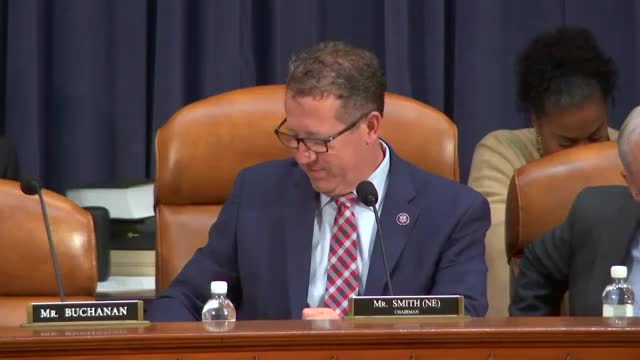Panel warns U.S. retreat from digital trade talks hands advantage to rivals
Get AI-powered insights, summaries, and transcripts
Subscribe
Summary
Witnesses at a House Ways and Means subcommittee hearing said U.S. withdrawal from core digital trade talks and slow enforcement of measures like digital services taxes risk harming American tech competitiveness, calling for renewed leadership and stronger enforcement tools.
Chairman Smith opened the House Ways and Means Subcommittee on Trade hearing by urging U.S. leadership on digital trade, saying, "Technology products are a crown jewel of American competitiveness." The panel of witnesses told members that recent U.S. decisions at the World Trade Organization and the evolution of measures such as digital services taxes (DSTs) threaten American firms' global market access.
Panelists emphasized why the issue matters. Robert Atkinson, president of the Information Technology and Innovation Foundation, told the subcommittee that America must push back against foreign measures that discriminate against U.S. companies, pointing to the administration's decision last year to withdraw support for core digital trade rules at the WTO. He warned that without U.S. leadership, other countries and blocs could set rules that disadvantage American firms.
Atkinson and other witnesses described four recurring problems abroad: data localization requirements that force companies to keep data on domestic servers, source-code disclosure demands, digital services taxes that target revenues of U.S. firms, and regulatory regimes such as the European Union's Digital Markets Act and Digital Services Act that impose heavy fines and compliance obligations on major platforms. "These companies pay a tax credit against their U.S. taxes," Atkinson said of DSTs, arguing the charge ultimately comes from U.S. taxpayers. Witnesses said Canada’s DST and the EU rules are examples of measures the U.S. should be prepared to challenge through trade enforcement.
Several members pressed witnesses on tools to respond. Atkinson recommended a mix of enforcement and deterrence, including trade dispute cases and, if necessary, reciprocal measures. He described ideas circulated in economic policy circles — including mirror taxes on foreign firms — and said the U.S. has options ranging from targeted trade remedies such as Section 301 to negotiating stronger treaty language. Witnesses also urged full use of existing agreements cited as "gold standards," including the United States-Mexico-Canada Agreement (USMCA) and the U.S.–Japan digital trade commitments, which prohibit data localization and forced source-code disclosure.
The discussion also touched on global competition for influence. Freedom House's Adrian Shabazz warned that when the U.S. cedes leadership at multilateral fora, authoritarian governments may promote data-localization and surveillance-friendly rules that weaken internet freedom and civil liberties. Several members cited concerns that China and other actors are filling any U.S. policy vacuum.
Closing remarks from members and witnesses reiterated two principal recommendations: (1) restore active U.S. participation and leadership on digital trade rulemaking at multilateral and bilateral levels, and (2) use enforcement tools to respond to discriminatory measures such as retroactive DSTs. No formal action or vote occurred at the hearing; members were given two weeks to submit written questions for the record.
